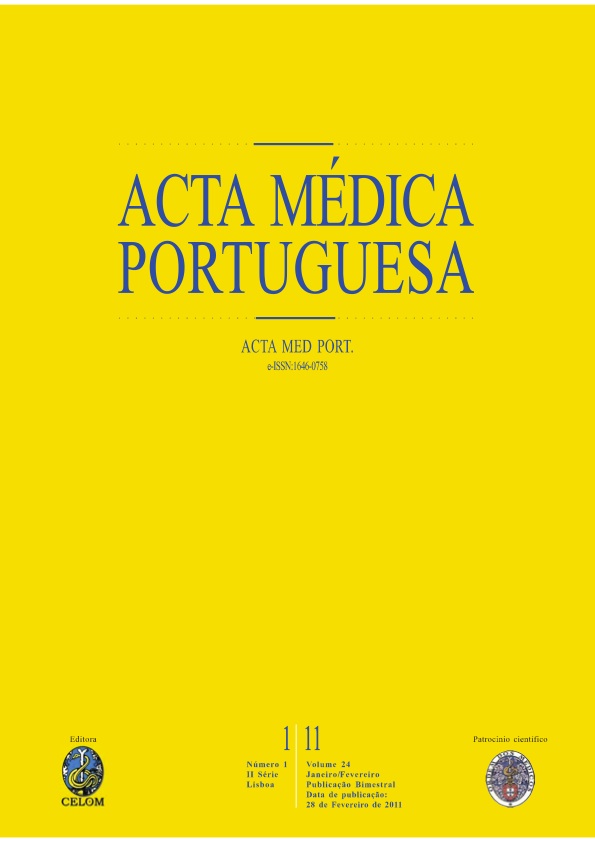Management of adult secondary insomnia in primary health care.
DOI:
https://doi.org/10.20344/amp.334Abstract
Insomnia is the most common sleep disorder in adults, with secondary insomnia being the most prevalent. This sleep disorder is associated with important medical and social consequences. The General Practitioner (GP) plays a key role in the diagnosis of insomnia, which may affect about 69% of their patients in the PHC (Primary Health Care).Recognize the differential diagnosis of secondary insomnia in adults, evaluate and manage these patients in the PHC, appropriately use the treatments available and meet the criteria for referral.Bibliographic search in MEDLINE databases, and evidence based review databases, using the MeSH terms: Primary Health Care, Sleep Disorders, Insomnia, for articles published since January 2000 until July 2009, in English, Portuguese, French and Spanish. Index de Revistas Médicas Portuguesas and scientific societies dedicated to sleep disorders were searched.Mood and anxiety disorders are the main co-morbidities associated with secondary insomnia, being present in 30% to 50% of patients with insomnia. The medical pathology and substance abuse are present respectively in 10% of patients. It is essential a proper clinical history, with a history of sleep, sleep diary and the partner information. There is evidence that the combination of specific pharmacological treatments (benzodiazepines and the benzodiazepine receptor agonists) with the nonpharmacological (cognitive-behavioral therapy) may be useful in secondary insomnia, as co-adjuvant treatment of the underlying disease. There are several treatment options with their indications and adverse effects. The criteria for referral should be defined according to the availability of human resources.Due to the high prevalence and the serious consequences of secondary insomnia in adults, it must be systematically managed by the GP. It is important to know and to use non-pharmacological therapy in GP consultation, because this therapy was shown to be important in treating this type of insomnia. The GP must know the precise indications for pharmacological treatment and criteria for referral.Downloads
Downloads
Published
How to Cite
Issue
Section
License
All the articles published in the AMP are open access and comply with the requirements of funding agencies or academic institutions. The AMP is governed by the terms of the Creative Commons ‘Attribution – Non-Commercial Use - (CC-BY-NC)’ license, regarding the use by third parties.
It is the author’s responsibility to obtain approval for the reproduction of figures, tables, etc. from other publications.
Upon acceptance of an article for publication, the authors will be asked to complete the ICMJE “Copyright Liability and Copyright Sharing Statement “(http://www.actamedicaportuguesa.com/info/AMP-NormasPublicacao.pdf) and the “Declaration of Potential Conflicts of Interest” (http:// www.icmje.org/conflicts-of-interest). An e-mail will be sent to the corresponding author to acknowledge receipt of the manuscript.
After publication, the authors are authorised to make their articles available in repositories of their institutions of origin, as long as they always mention where they were published and according to the Creative Commons license.









